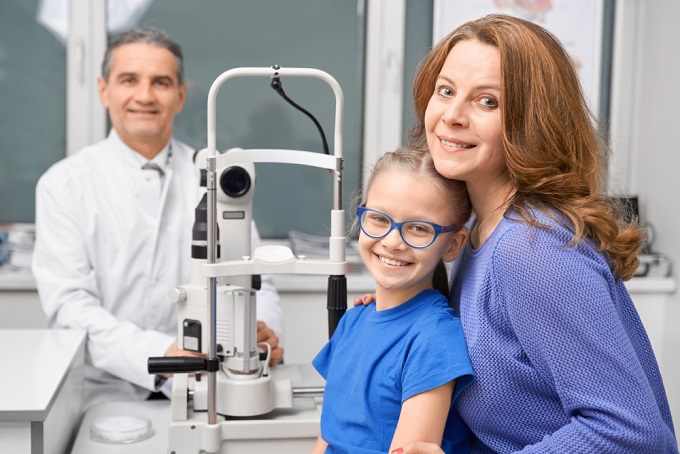
Screens are part of everyday life—at home, in school, and nearly everywhere in between. For children, this constant exposure can silently take a toll on their vision. While digital tools support learning and connection, overuse can lead to issues that affect both comfort and concentration.
Symptoms may include dry eyes, headaches, blurred or double vision, and trouble focusing. In children, these signs often go unnoticed or are mistaken for behavioral issues. At Visual Ophthalmology Services, P.C., providers have noted a rise in young patients with complaints consistent with eye fatigue and discomfort—an issue becoming increasingly common.
Common Signs of Eye Strain in Kids:
- Frequent squinting or blinking
- Complaints of eye fatigue or pain
- Difficulty keeping focus while reading
- Holding tablets or phones very close to the eyes
- Avoidance of screen-related activities after a while
The long-term concern is that unaddressed eye strain could impact your child’s academic performance and daily well-being. Fortunately, proactive steps can help reduce the risk and support healthy vision development.
Simple Ways to Protect Their Eyes:
- Encourage the 20-20-20 Rule – Every 20 minutes, have them look at something 20 feet away for 20 seconds.
- Promote Outdoor Play – Spending at least an hour outdoors daily can support overall eye health.
- Adjust Screen Position and Lighting – Keep devices at eye level and avoid high contrast between the screen and surroundings.
- Limit Recreational Screen Time – Create tech-free zones, especially during meals and before bedtime.
- Schedule Regular Eye Exams – Annual checkups can catch problems early, even before symptoms appear.
Early attention makes a lasting difference. If you’ve noticed any signs of eye strain in your child or want peace of mind, it’s time to get their eyes checked. Reach out to Visual Ophthalmology Services, P.C. to book your child’s next eye exam today—call our Ridgewood office at 718-418-0100, Corona at 718-271-4472, or Astoria at 718-204-6667.
Disclaimer
Blogs, content and other media uploaded online are for informational purposes only. Contents on this website should not be considered medical advice. Readers are strongly encouraged to visit their physician for health-related issues.








